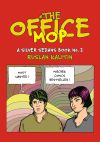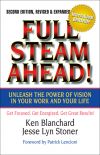Правообладателям!
Представленный фрагмент книги размещен по согласованию с распространителем легального контента ООО "ЛитРес" (не более 20% исходного текста). Если вы считаете, что размещение материала нарушает ваши или чьи-либо права, то сообщите нам об этом.Читателям!
Оплатили, но не знаете что делать дальше?
Текст бизнес-книги "Now We Are 40"
Автор книги: Tiffanie Darke
Раздел: Жанр неизвестен
Текущая страница: 3 (всего у книги 5 страниц)
The public–police stand-off at Castlemorton provoked the Criminal Justice Bill – in particular Section 63, which banned ‘sounds wholly or predominantly characterised by the emission of a succession of repetitive beats’. This lit up the music industry. The band Autechre released a three-track EP labelled ‘Warning: “Lost” and “Djarum” contain repetitive beats’. Orbital released a mix of its track ‘Are We Here?’ that it titled ‘Criminal Justice Bill?’ and which consisted of four minutes of silence. The Prodigy included a track ‘Their Law’ on their album Music for a Jilted Generation, which was introduced in the sleeve notes with: ‘How can the government stop young people having a good time? Fight this bollocks.’ Meanwhile Dreadzone released the single ‘Fight the Power’, which sampled Noam Chomsky urging people to think about ‘taking control of your lives’, and advocating political resistance. The ruling party was as culturally divorced from its youth as it was possible to be.
The bill didn’t just target ravers – the legislation also attacked hunt saboteurs, squatters and football fans. Essentially it amounted to a judgement on people’s lifestyles – which enraged us. It repealed the councils’ duty to provide permanent sites for travellers; police would have new powers of stop and search; the right to silence would be affected; and the criminalisation of ‘disruptive trespass’ had consequences for squatters, travellers and protesters alike. Uniting in protest, formerly unrelated movements began to come together in coalitions: students, trade unions, sound systems, traveller communities and direct action groups.
Three marches were planned in central London, the first two of which passed peacefully, with Tony Benn standing on a box in Trafalgar Square. Raves in London squats and on Wanstead Common took them into the night. The third ended in a riot. Tear gas was deployed, civilians were beaten up by police, dogs died, and any impression the groups had given the establishment that they were a civilised bunch with a civilised point of view was seriously damaged.
Once the bill came into effect, the free party scene withered. Instead, the right to party went overground and became a thriving industry. Nightclubs, DJs and festivals were the ultimate winners. Festivals still loosely embed political and socially conscious messaging into their line-ups, in a nod to the DNA of the scene that birthed them, but actually they are more about having fun and taking a break from normal life than raging against the machine. Your alternative lifestyle in one three-day £150 ticket. Sponsored by Vodafone. If you go to a festival now you are part of an entertainment culture, with nice bathroom facilities, wrist bands, glamping and fancy cocktails. It’s a long way from those crusty sound systems and cans of Strongbow. Those sound systems headed into Europe, making way for Paul Oakenfold, Carl Cox and their progeny – Calvin Harris, David Guetta, Tiesto – to embrace a life of money and fame.
Ibiza went on to flourish. Surviving the scandal of Ibiza Uncovered, the television series that exposed the messy ‘Brits on tour’ years, it has remained a hedonist’s destination. It continues to supply a 24/7 smorgasbord of distraction, and when the low-cost airlines opened it up to weekend clubbers, no one ever caught their flight home. It was like a super, sunny, brown-limbed version of Castlemorton, with glamour, glitter and sand.
These days Ibiza is mostly off limits except to the super rich. It has risen above the raving riff-raff by hiking prices, and much of the partying takes places in expensively built private villas rather than the clubs. Many who built and bought those villas passed through the raving nineties – Ibiza’s hippie values and dance music culture suit their millions very well, even if they have built their own private nightclubs underneath their tennis courts. They no longer smile at strangers as the sun comes up, but at each other on board a yacht back from Formentera where they have just blown a grand on a rosé-soaked lunch at the see-and-be-seen beachside restaurant.
For the rest of us, there is ‘glamping’. Evolving the notion of abandoning yourself to the countryside for a night of hedonism, Generation X has consciously curated the experience – applying all the signifiers of cool to the original idea of striking out and leaving societies and communities behind. Being out in the open, ignoring the rules around night and day, creating your own environment to suit you, somehow morphed into £400 bell tents and Cath Kidston bunting. ‘Wild’ camping converged with the ‘free’ party experience, and we styled it up with duvets, double-lilo blow-up beds, tealight chandeliers and yurt hotels to make it as luxurious as possible. If your urban experience traps you Monday to Friday, you can load up the car on a Friday night and head off with your mates (and kids) for a weekend of (relatively) comfortable escape. Someone can always bring a sound system.
Some of the activist momentum was retained, however. ‘I remember being in Shepherd’s Bush when Reclaim the Streets took over the roundabout,’ says Martha Lane Fox. ‘Which I guess was to do with politics loosely, but it might just have been a massive rave. I’m not sure we had a sense of social purpose. We didn’t want to change the health service or change governments. We were just like, Fuck Thatcher, here’s a new way of being.’ However anti-establishment and vaguely political the movement felt, it was more a feeling that we were different from the world we had been born into, and that we were going to express ourselves differently. ‘We were culturally ambitious, but not politically,’ says Martha. ‘We went because it was a laugh, not because everyone was really up in arms.’
The Criminal Justice Bill succeeded then – despite the protest. It forced music and dance culture to be legalised, regulated and commodified, so it could be moderated and taxed. But it didn’t kill the music. Far from it – the Nineties were a period of incredible musical creativity, producing wave after wave of new music culture, from rave to Britpop to house to trip hop, to acid jazz to trance and drum ’n’ bass.
Much of that was to do with the growing multiculturalism of British society, and all the glorious influences that brought with it, in music, politics, fashion and community. Britain’s second generation of immigrant culture was just coming of age, and the social take of what those kids were offering up was absolutely the height of cool. As June Sarpong, a Ghanaian who grew up in Walthamstow, says, ‘Being in London during that time was so interesting. We were immigrants who had grown up and integrated with white people in a way that our parents just hadn’t. I was hanging out with Jazzie B and the Soul II Soul crowd at that time, and I found myself at the heart of this shift in the thinking of the city, the birth of a culture.’
Second-generation immigration culture was nowhere near the ruling elite economically or politically – but culturally they were absolutely centre. Economically, there was displacement, and violence and drugs. ‘I had a terrible car accident in 1989 that took me out of action for two years,’ says June. ‘I was hospitalised, stuck in a bed unable to move. Those big, formative teenage years were wiped out. All my friends grew up in social housing, they were doing drugs and getting wasted, things you do at that age. The accident was like a crazy intervention from the universe because I missed out on all of that. That’s the reason I don’t drink, or smoke, or do anything now, not because I’m judgmental but because the time I would’ve started I was ill. By the time I got better, I’d spent a lot of time on my own thinking in a way that would keep me from going mad. I had had to grow up.’
When June came out of hospital, Soul II Soul took her under their wing and got her a job at Kiss FM. ‘It was when Kiss had just become legal and they had all of the cool DJs from the illegal days – Trevor Nelson, Judge Jules, all those guys. I started working with them, going to Ibiza and Manumission. It was crazy, I used to go out dancing Thursday, Friday, Saturday, Sunday, out till 4 am and still manage to get to work on Monday!’
Kiss was the platform for all the new music coming through, breaking acts like Jamiroquai and providing a platform for labels like Acid Jazz (set up by Gilles Peterson to promote the music he found to play in the back room in Paul Oakenfold’s club). ‘The tide had changed,’ says June. ‘Kiss was a legal radio station playing the kinds of music our generation wanted to listen to. It went on to completely change the content of Radio One, and that brought cool into the mainstream.’
Scenes were taking off in Manchester and Liverpool too. Down in Bristol the Wild Bunch sound system birthed Massive Attack, Tricky and Bristol’s trip hop scene. Nellee Hooper moved to London and became a producer for Madonna and U2. Meanwhile Bristol University was bringing in a bunch of white kids from privileged backgrounds and mixing it all up. Ben Elliot, the Etonian who went on to found the luxury concierge company Quintessentially, got his first taste of clubbing in Bristol. Before he went up, he was working at the Independent; Massive Attack had just released Blue Lines and a copy had come in for review.
‘The Independent was brilliant at that point. Their Saturday Review magazine was running all these great, edgy black and white photos, reflecting a lot of what was going on. When Blue Lines came in I remember thinking, “That looks cool,” and nicking it and thinking it was incredible. Then I arrived in Bristol. Even though I went there with no friends, because of this scene I suddenly met masses of different people. I met a huge Pakistani guy from Somerset who sells furniture now. Another guy was a mature student who was really in with 3D and Tricky. I began to put on club nights and we’d get Daddy G [of Massive Attack] to come and DJ. I think at one stage I even had a pair of silver trousers. There were shops on Park Street in Bristol where everyone would go to get kitted up for Friday or Saturday night.’
It didn’t take long to spread north. ‘When I was 16 and growing up in Wakefield I remember going out to the local club, where they played terrible music – Stock Aitken Waterman,’ says Richard Reed. ‘Everyone got really drunk and I remember seeing this guy getting a glass smashed in his face. Later that night I saw the same guy in a kebab shop, still with the blood running down his face. It was dripping into his kebab, and he was eating it. No one was having any fun, it was all drunken aggression. A year later I went out again and the music had changed, everything had changed. Everyone was happy – smiles on their faces, hands in the air. House music had ushered in some kind of difference.’
The son of a nurse and a bus conductor, Reed was surprised when his school suggested he apply for Cambridge University. ‘I wanted to go to Nottingham because that was where all the best clubs and DJs were. I thought Cambridge was going to be full of posh people talking about rugby. I got to Cambridge and guess what? It was full of rugby blokes singing rugby songs, listening to terrible music. Everything I feared. I thought, we need a bit of house music here. I met Adam, from London, who loved the acid jazz scene, and this guy John and us started to put on house music nights. We realised we were having more fun organising them than the people who were queuing and paying to come in – at that point we realised we’ve got something here, this is what we should do.’ The three of them still work together today.
This time in our lives taught us influence can lie with the individual rather than the organisation. It empowered us, made us question the establishment. ‘The Criminal Justice Bill and the Poll Tax riots made everyone realise you can’t keep on telling us what to do,’ says Reed. ‘We can be subversive, question the status quo, do things differently from the way they have been done before. The Nineties roughed things up a bit – you couldn’t go out and dance all night in strict fashion, you needed to be comfortable in trainers. There was a bit of darkness going on with the political unrest and that helped people question things and reject the choice architecture.’
Cool, which we got from music, fed into fashion, film and everything else that sprang out of that scene. Cool was our possession, we loved it, nurtured it, crafted it. ‘Contrived it, yes, but that’s because we actually considered it,’ says June. ‘We cared. It didn’t matter what music scene it was, whether it was Indie, Blur or acid jazz, all of them were cool. You just wanted to be part of them, didn’t you? I wanted to be friends with Oasis and Meg and all that lot, they were just so fricking cool. Still are!
‘I think the legacy of that cool is, our generation will be forever young. My mother was late thirties, forties, at that time, which was like an old woman. Whereas we will be like this for another 20 years. I don’t think that’s the same for the younger ones. I think we’re going to catch up. When we’re 60 and they’re 40, I don’t think there’ll be much difference at all!
‘Also we monetised cool, exploited it, which is a good thing because for so many years interesting artists have been broke. Thank goodness the Damien Hirsts and Tracy Emins made loads of money. Great, why not? But at the same time, it meant that we lost some of the really important changes. And one of them for sure is making politics interesting for a disengaged group.’
With cool comes irony, and in the end irony is a great dehabilitator of progress. Irony eventually means you believe in nothing – it leads to nihilism. Maybe the reason we dropped the ball politically is because we couldn’t take anything seriously – even ourselves – in the end. The political denouement to all of this was starkly illustrated in the Brexit vote. The inclusive, liberal, multicultural society we thought we had built was rejected by just over half the country. Brexit was a shout from those whom this society did not benefit – or who did not understand its benefits. Those for whom multiculturalism was not a benevolent positive force; for whom the metropolitan acceleration was too fast and too self-oriented; whose sense of nostalgia and nationalism extended back to before this time. There’s a job to do now, to bring those two halves together, and a lesson for Generation X that when cool becomes too exclusive, it writes itself out of the system.
But politics aside, we had learned a lot from the dance music revolution – it was time to make a living out of what we had learned.
3
Just Be Good to Me: How Business Became Sexy
Like many X-ers I had no vocation. In 1993, when I left university, I had no clue what I was going to do. The idea that you dedicated your life to a company or institution then retired on a nice, big, final salary pension was being knocked out of the park – my friends’ parents were being laid off all over and there were chilling tales of suicides in the papers. The professions were unattractive to me – law looked boring, medicine was what my dad did. As I drifted about, I thought that probably the most suitable ambition was to try as many things as I could in order to build up as rich an experience of life as possible. Experience, after all, was far more interesting than money.
I wasn’t afraid of work – I had a Saturday job in a sweet shop from the age of 14, I waitressed all the way through my university days to pay my debts, I thought nothing of double shifts to save up for a holiday. X-ers are not shirkers – in fact I often curse myself for such a Protestant work ethic; it is uncomfortably at odds with a life of travel and a fondness for high-octane leisure.
A team of contemporaries noticed our generation’s demand for a high-quality lifestyle, but also that the world’s demand that we work for it was at odds with the life itself. They set up The Idler, a media brand in praise of intellectual pursuits and creating the time and place for reflection. They threw very good parties and its founder, Tom Hodgkinson, has tried to monetise it in the form of workshops, classes and a magazine (man and woman, it turns out, cannot live on poetry and fishing alone).
‘In essence it was about freedom,’ says Tom. ‘I felt stuck in a job I hated, in contrast to the experience I’d had at university, school and my first job working in a record shop. There I’d had lots of free time to play in bands, work on magazines, listen to music and engage in cultural pursuits and philosophy. I wanted to find ways to re-engage with that side of life.’
Following a hiatus in which Tom moved to the country and had children, the brand is now back, and enjoying something of a revival, particularly through its Idler Academy, a school where you take courses in everything from learning Latin to playing the ukelele. ‘We’ve narrowed it down to three fs now – freedom, fun and fulfilment,’ says Tom.
But at this rather junior point in my life, I was happy to accept that work was a means to enjoying a lifestyle, not building long-term wealth. Double shifts in Pizza Hut meant I could go travelling around India and Central America. In Douglas Coupland’s Generation X he called these ‘McJobs’: ‘A low-pay, low-prestige, low-benefit, no future job in the service sector. Frequently considered a satisfying career choice by people who had never held one.’
This way of working – of taking shift work to save up for a period of extended leave – has definitely stayed with Generation X. My colleague Anthony, now deep in his forties, turned up for work recently with a backpack on his back. After he finished his shift as a sub-editor he was off to New Zealand with his girlfriend for five weeks. She had a slot to show her art film at a festival out there, and they knew some friends of friends who said they could come and stay – and that was enough.
Thinking that my kids at home and my staff job afford me no such freedoms I felt uncomfortable pangs of envy before checking in with Douglas again: ‘Poverty Jet Set: A group of people given to chronic travelling at the expense of long-term job stability or a permanent residence. Tend to have doomed and extremely expensive phone-call relationships with people named Serge or Ilyana. Tend to discuss frequent-flyer programmes at parties.’ Note: written before the age of Skype.
But after university I did want to get ahead, get on with things. I wasn’t sure what I wanted to do – I took a secretarial job in a PR firm as that was all I could get. This was 1993 and the recession had jammed everything up. But the job was in London and I could afford to move there with my friend Lara because back then housing was within our reach. The job paid about £13,000 p.a., which was not bad, and we rented a studio flat in Notting Hill off the boyfriend of a friend of ours. The rent was about £350 a month, which was just about do-able when we split it between us, especially when we nicked the toilet roll and teabags from work and had egg banjos for dinner most nights. We saved our money for Cosmopolitans and trips to Hyper Hyper. Obviously.
It wasn’t as if PR was my dream career, but clearly it was just the beginning of an exciting professional adventure that lay before us. The media was booming – glamorously, and what’s more it looked like the young and cool were in charge. Very few of my peers wanted to go into public service or the charity sector. ‘I think people were ambitious,’ says Martha Lane Fox. ‘They may not have been money ambitious but they were ambitious. But a lot of it was about ambition for yourself as opposed to that wider sense of the world. How that’s changed now.’
For Generation X the dream career was finding a job in one of the cool bits of youth culture that were exploding. Serena Rees, who founded the erotic fashion brand Agent Provocateur with Joe Corré, says her party and her work life were entirely intertwined. ‘Going out was dancing, wearing crazy outfits. But I worked really bloody hard too, in advertising, and had a lot of fun.’
For Rees, the clubs were her university of life. ‘I left school when I was 16 so I didn’t ever have that grown-up education where you’re hanging out with people and sharing your ideas. We did our sharing of ideas in clubs and bars. In the early Nineties I met Joe and started working with his mum, Vivienne Westwood. Everyone was grafting – even the people that were running the clubs.’
The work ethic, she thinks, came from Thatcherism. ‘There’s got to have been some good in the bad with Thatcher. That work ethic to get yourself out of the shit gave everybody the push to go and do it. We were also given the opportunity because we were in a recession and it was like, right, you’re brave and you fight and you’re not scared of failure. Just go and do it.
‘When we opened that first Agent Provocateur on Broadwick Street in Soho, Katie Grand, Stella McCartney, Giles Deacon – all that lot used to come and hang out. Isabella Blow and Philip Treacy would pop in for a cup of tea. All the people I’d known from my club years, all the kids at St Martin’s round the corner in Charing Cross, would come and sit on the steps and share what they were working on. Back then there was only a handful of places to go, whereas now I suppose it’s less congregational. Kids these days don’t have places where they go and hang out, because they are all on their devices. No one does an actual physical shop because you can do a shop online.’
For Rees, the path to retail goddess was organic. ‘Joe was trying to run his mum’s shop, but he was struggling so I went to help him. Everything is pretty fundamental about any business, I think – you’ve just got to roll up your sleeves and get on. Joe and I wanted to do our own thing, so we started researching this idea in our spare time. My first job was working for this company that produced all the books for the top models in New York, Paris and Milan, so I knew every photographer, stylist and model from all around the world. Every day I was seeing the best photography. Then working in the advertising agency, I learned about getting a photographer or an illustrator or graphics person, bringing an idea to life and making something. I’d had a good training. All the campaigns we did for Agent Provocateur, all the fly posters and shoots – I knew how to do all of that.
‘The difference between now and then, is back then we didn’t care about being successful or making money, that wasn’t what it was about. It was nice when it worked and there was a queue of people. But what was exciting was sharing what you think is great, and finding out everyone else thinks it’s great too.’
The brand grew, eventually to over 100 shops in 13 countries. Its success lay in the careful shepherding of its balance between sex and fashion – crotchless panties may have sounded tacky, but when they were shot on Kate Moss by Ellen von Unwerth, they were the acme of desire. Joe and Serena surrounded themselves with the coolest models, artists, film directors and celebrities, which powered the brand into the high end fashion arena, even though it was selling a bedroom fantasy. Where Joe brought the raunch, Serena brought the taste, with an uncompromising demand for quality fabrics and design. This brand was more Prada than Ann Summers, and in 2007, 13 years after they opened that first shop, a private equity firm bought an 80 per cent stake for £60m.
‘Kids now think you can be successful quickly – there’s too much Dragon’s Den giving them this false hope,’ says Serena. ‘It’s not going to happen unless you work your arse off and you’ve got a good idea.’ She now invests in and advises new businesses, and doesn’t like what she sees. ‘People are doing it because they want to be famous, to make loads of money. That’s their drive, rather than it being real.’
As Agent Provocateur proved, first you need a good product (and post Gerald Ratner everyone now knew that) and second you need to tell a good story around it. ‘The marketing guy used to be the least important person in the business,’ says Richard Reed. ‘But in the Nineties you saw the rise in priority of telling a story about your product. It’s got more and more important, to the point now where the marketing guy’s actually on the board. It’s product and story: the whole company has got to really care about what you are producing and serving up.’ Marketing became a creative art.
The pursuit of money, or going into business, on the other hand, was not perceived in any way as creative at that time. It was for people in suits who carried briefcases and wanted to hang out with dreary bank managers. Besides it was all about money – and money, post Eighties, was vulgar. Business was Arthur Daley or Harry Enfield’s Loadsamoney – only for the greedy and the brash. Post Eighties, we all know where that ended: Black Monday, a property crash, the collapse of the economy. Thatcherism was deeply unfashionable. Nevertheless, the idea anyone could now have a go – could propel themselves up the social and economic ladder – should they so wish, was embedded in Generation X. The subliminal message of Thatcherism struck deep. It was to supercharge the entrepreneurialism of the next decade.
‘It’s always been quite trendy to Thatcher bash, but for me the idea about freeing up the ability to do your thing was a really important part of my psyche,’ says the fitness trainer Matt Roberts. ‘As a 15-year-old, I had the idea for doing the business I now have. I grew up in the leafy county of Cheshire, a white, middle-class area. But my parents came from South Wales, my dad was from the Valleys, and only got out because he played football. First for Arsenal, then Wrexham, which was how we ended up in Cheshire. He had this great opportunity for leaving the Labour heartlands of the Valleys. My grandmother had a council house on an estate in Swansea but when my dad retired from football – and in those days you didn’t have anything like the cash you have now – my mum made the money by setting up a clothes shop. For my friends, that wasn’t the case. They’re from classic Labour-supporting families and didn’t believe they could go and do anything different. They settled for being in the same four-room box house.’
But the idea of what a business was and could be was about to change. There were already two trailblazers offering a different type of model: Anita Roddick and Richard Branson. The latter started out by setting up a record label (obviously cool) and the former was militant in using her business to promote a new kind of ethics: not testing products on animals. These two voices may have been alone in the idea that business could be a force for good, but they were also very loud and influential. It was not to be until the time of the Millennials – when business, aided by the digital revolution, became the new rock ’n’ roll – that the idea that business should help shape society took hold. Innocent was about to show how it could be done, how business could marry our values and social consciousness, and be interesting and fun at the same time.
Founded in 1998 by three student friends who met through their shared love of house music, it mixed up the cool of nineties advertising and marketing messages with the health of a generation on a hangover. Their cute, colourful bottles of mango and passion fruit, strawberries and banana and kiwi, and apple and lime juices, spoke directly to the customer, promising ‘to help you and heal you’, advising you to ‘shake before opening not after’ and even flirting with you: strawberries were included because they ‘go very nicely with your lipstick’ (‘wackaging’ or wacky packaging, as it came to be known). At the time, this challenged all the ideas of what big companies thought of as business. Innocent started with the consumer first. What do they want? What language do they speak? When they think of Innocent do they want to think of a boardroom of suits or someone like them?
Richard is now a handsome fortysomething who is still sporting scruffy hair, T-shirt and skinny jeans, exactly the same outfit that so disrupted the business community back in the Nineties.
‘Innocent was always just a little bit subversive,’ he says. ‘Other businesses were obsessed with supply chains and the bottom line, whereas Innocent was about thinking about the individual first. We are a very individual generation. In the Nineties we saw everything had started to change, that you could reinvent what it is that you want. You can say, Do you want a blue sweater or a red one? Or you can say that you don’t have to have either. Reinvent the choice architecture.’
What they did was pledge to donate 10 per cent of all their profits to charity. They also invested their staff in their company, gave everyone beer on a Friday and handed out £1,000 scholarships. Headquarters was ‘Fruit Towers’ in Notting Hill, a colourful building with astroturf, table-tennis tables and beanbags, and they drove around in funny-looking trucks covered in grass or painted in cow print. (This was just as Silicon Valley culture was beginning to make hoodies and office table-tennis tables a thing. Now of course, they are a total cliche.) Innocent caught our attention – partly because no one had been sold a fruit drink promising ‘ground-up cats’ before, and partly because the City and the business pages had never met ‘businessmen’ like this before. ‘If you’re going to turn up to a meeting in a T-shirt, you’ve got to be even more on top of your game than a guy in a suit, so people take you seriously,’ smiles Reed.
Being nice to people was the company culture too. It wasn’t solely about feathering your own managerial nest and hitting your profit targets, it was about having a nice time. After all, Reed and his partners, Adam Balon and Jon Wright, had started out in business putting on club nights together. ‘At Innocent we had ten babies out of it – everyone was copping off with each other!’ Business started to take on a new kind of shape. ‘Hippies with calculators’, is how one newspaper article described them, which Reed likes a lot. The father of hippie capitalism.
Правообладателям!
Представленный фрагмент книги размещен по согласованию с распространителем легального контента ООО "ЛитРес" (не более 20% исходного текста). Если вы считаете, что размещение материала нарушает ваши или чьи-либо права, то сообщите нам об этом.Читателям!
Оплатили, но не знаете что делать дальше?






